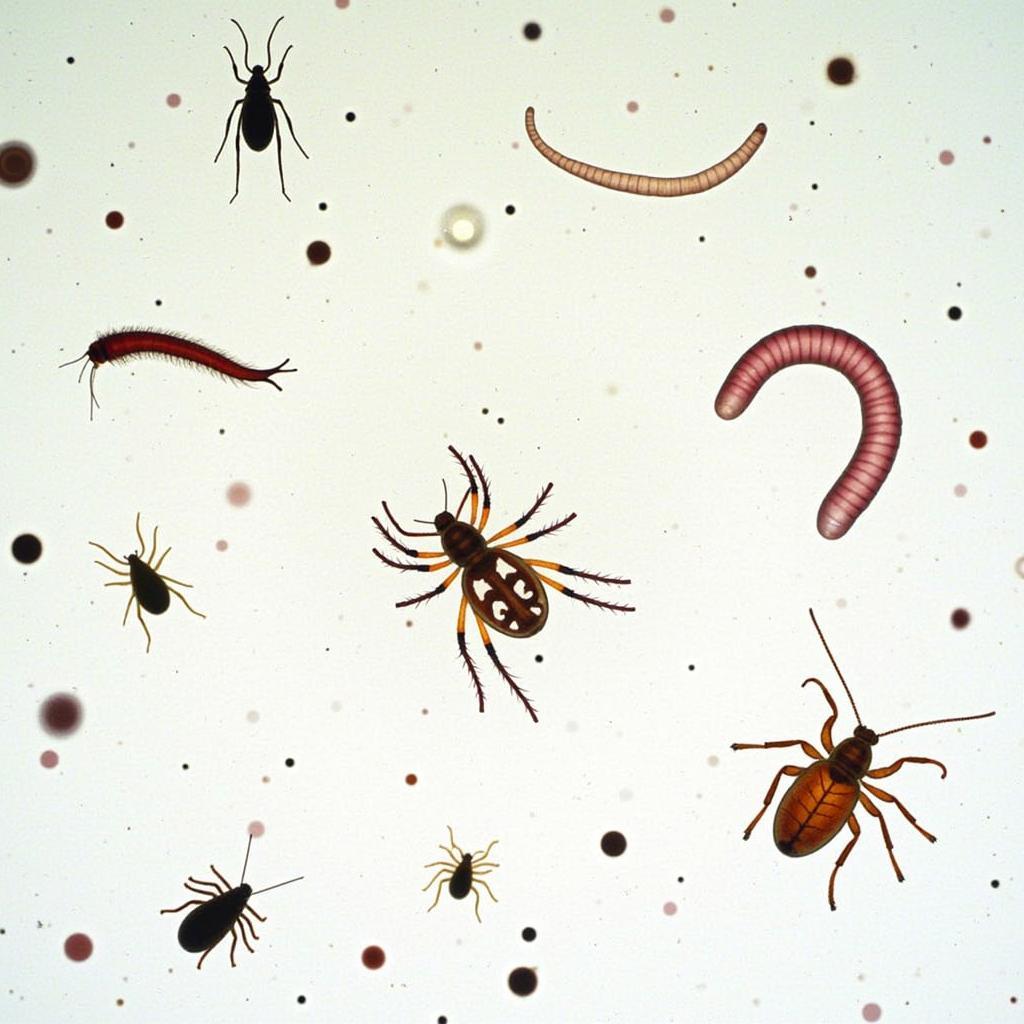Equiotic For Horses is a topic that often raises questions for horse owners. This guide provides a deep dive into what equiotic is, its benefits, potential risks, and how it fits into a comprehensive horse care plan. We’ll explore the different types of equiotic products available and offer practical advice for responsible administration.
What is Equiotic and Why Should You Care?
Equiotic is a brand name for moxidectin, a broad-spectrum antiparasitic medication used in horses to treat and control various internal and external parasites. These parasites can significantly impact a horse’s health, ranging from mild discomfort to life-threatening conditions. Understanding the role of equiotic in parasite control is crucial for maintaining your horse’s well-being.
Types of Parasites Equiotic Targets
Equiotic is effective against a wide range of parasites, including:
- Roundworms
- Lungworms
- Bots
- Mites
- Lice
This broad spectrum of activity makes it a valuable tool in a horse owner’s arsenal.
 Equiotic effectively targets various horse parasites like roundworms, lungworms, bots, mites, and lice.
Equiotic effectively targets various horse parasites like roundworms, lungworms, bots, mites, and lice.
Benefits of Using Equiotic for Horses
The primary benefit of equiotic is its effectiveness in controlling a broad spectrum of parasites. This helps prevent parasitic infections and the associated health problems. A healthy horse is a happy horse, and regular parasite control with equiotic plays a vital role in maintaining that health. Additionally, equiotic is available in a convenient paste form, making administration relatively easy for horse owners.
How Equiotic Works
Equiotic works by interfering with the parasite’s nervous system, leading to paralysis and death. The active ingredient, moxidectin, is absorbed into the horse’s bloodstream and distributed throughout the body, reaching the parasites where they reside.
Potential Risks and Side Effects of Equiotic
While generally safe, equiotic can have potential side effects, including:
- Swelling at the injection site (if administered via injection)
- Temporary hair loss at the injection site
- Mild allergic reactions
It’s essential to consult your veterinarian before using equiotic, especially if your horse has any underlying health conditions.
When to Consult Your Veterinarian
If you observe any unusual behavior or symptoms after administering equiotic, contact your veterinarian immediately. They can determine if the symptoms are related to the medication and advise on appropriate action.
Equiotic Dosage and Administration
The dosage of equiotic depends on the horse’s weight and the specific parasite being targeted. Always follow your veterinarian’s instructions regarding dosage and administration. Incorrect dosage can be ineffective or even harmful.
Importance of Accurate Dosage
“Accurate dosing is paramount for ensuring the effectiveness of equiotic and preventing potential complications,” says Dr. Emily Carter, DVM, specializing in equine parasitology. “Overdosing can lead to toxicity, while underdosing may not effectively eliminate the parasites, potentially leading to resistance development.”
Equiotic and Your Horse’s Overall Health Program
Equiotic is a crucial part of a comprehensive horse health program. Alongside regular deworming, proper nutrition, hoof care, and dental checkups contribute to a healthy and thriving horse.
Conclusion
Equiotic for horses provides effective control against a wide range of internal and external parasites. Understanding its benefits, risks, and proper administration is crucial for responsible horse ownership. By incorporating equiotic into a comprehensive horse health plan, you can contribute significantly to your horse’s overall well-being. Regular consultation with your veterinarian will ensure the safe and effective use of this valuable medication.
FAQ
- How often should I deworm my horse with equiotic?
- Can I use equiotic on pregnant mares?
- Are there any alternative deworming options?
- What are the signs of a parasitic infection in horses?
- How can I prevent parasite infestations in my horse?
- Can I administer equiotic myself, or should a vet do it?
- What should I do if my horse has an adverse reaction to equiotic?
You might also be interested in reading these related articles on our website: “Understanding Horse Parasites” and “Creating a Comprehensive Horse Health Plan”.
Need support? Contact us 24/7: Phone: 0772127271, Email: [email protected] or visit our address: QGM2+WX2, Vị Trung, Vị Thuỷ, Hậu Giang, Việt Nam.